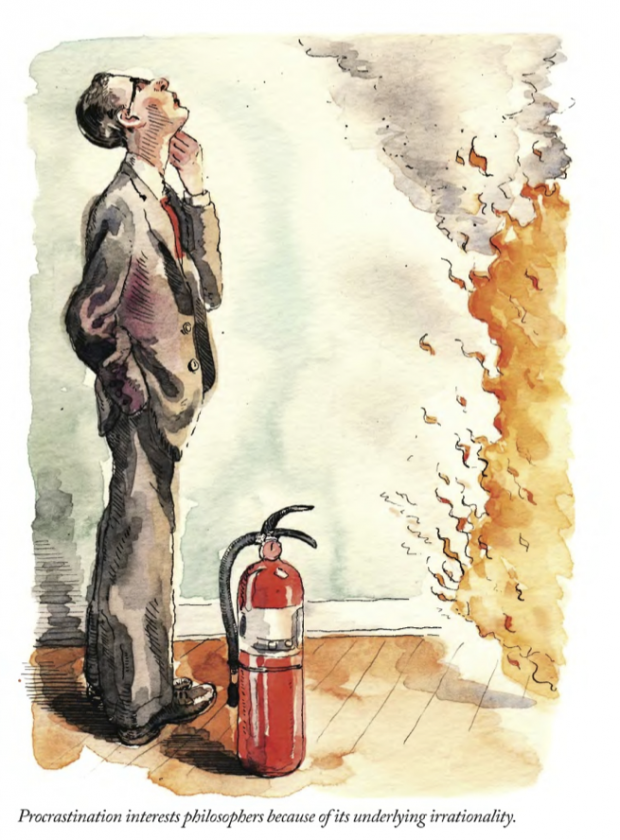An iconographic and text archive related to communication, technology and art.
Lack of confidence, sometimes alternating with unrealistic dreams of heroic success, often leads to procrastination, and many studies suggest that procrastinators are self-handicapers: rather than risk failure, they prefer to create conditions that make success impossible, a reflex that of course creates a vicious cycle.
☛ The New Yorker: “Later. What does procrastination tells us about ourselves?” by James Surowwiecki, October 11, 2010, p. 112 (©2010 Condé Nast)
James Surowiecki, staff writer for TNY and author of The Wisdom of Crowds, reviews The Thief of Time. Philosophical Essays on Procrastination edited by Chrisoula Andreou and Mark D. White (Oxford University Press, 2010):
This edited volume starts in on the task of integrating the problem of procrastination into philosophical inquiry. The focus is on exploring procrastination in relation to agency, rationality, and ethics-topics that philosophy is well-suited to address. Theoretically and empirically informed analyses are developed and applied with the aim of shedding light on a vexing practical problem that generates a great deal of frustration, regret, and harm. Some of the key questions that are addressed include the following: How can we analyze procrastination in a way that does justice to both its voluntary and its self-defeating dimensions? What kind of practical failing is procrastination? Is it a form of weakness of will? Is it the product of fragmented agency? Is it a vice? Given the nature of procrastination, what are the most promising coping strategies? (read more over at the Oxford University Press)
(Accompanying illustration by Barry Blitt)
- By Philippe Theophanidis
- on
- ― Published in Philosophie
- Tagged: confidence, delusion, failure, loser, procrastination, self, time

